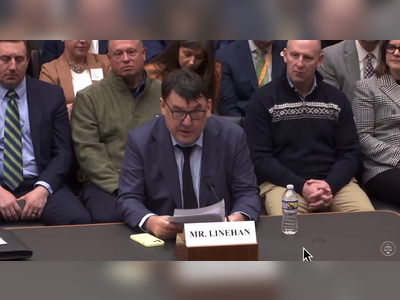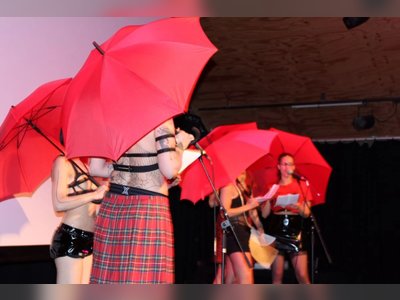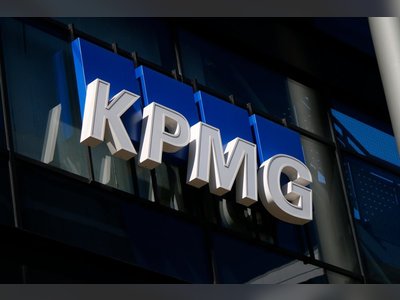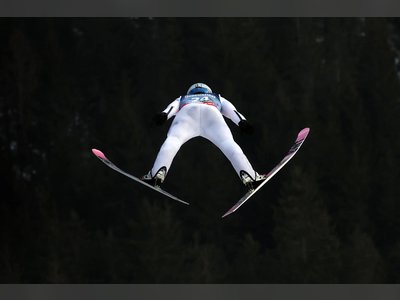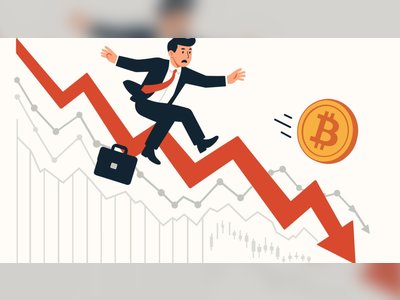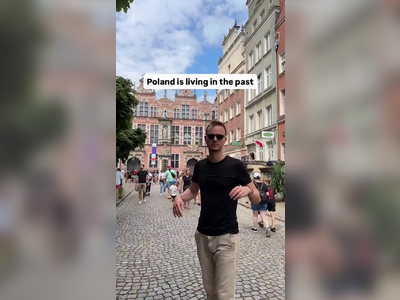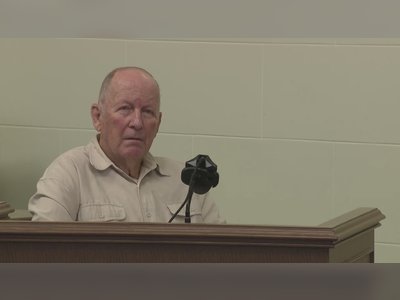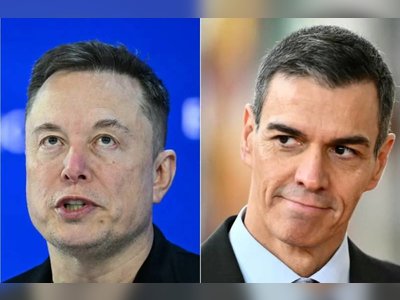The New French Revolution: Non-Alcoholic Wines at the Heart of Bordeaux
A mix of tradition and innovation, alcohol-free wines spark debates in France's renowned wine regions as consumer preferences evolve.
In Bordeaux's revered vineyards, a quiet revolution is unfolding, challenging age-old viticultural traditions.
Alcohol-free wines, once dismissed by purists, are now becoming a viable alternative in response to changing consumer tastes and economic pressures.
Frédéric Brochet, a renowned Bordeaux oenologist, is leading this transformation.
His Moderato line showcases the significant advancements in crafting drinkable non-alcoholic wines.
"What we used to make was honestly terrible," Brochet admits openly.
"But we've made great progress. Today, we're getting closer to our objective. I believe it will be a revolution in the wine world."
The growing acceptance of alcohol-free wines was underscored by the opening of Bordeaux's first dedicated alcohol-free wine shop, Les Belles Grappes, run by Alexandre and Anne Kettaneh.
"We only opened four weeks ago, and already wine-growers from the area are visiting and asking about the non-alcohol market," Kettaneh notes.
These growers, traditionally resistant to innovation, are starting to recognize the market's demands.
Various factors are accelerating this shift.
Domestically, French wine consumption continues to fall, worsened by an unstable international market due to changes in Chinese imports and possible new U.S. tariffs.
Meanwhile, younger generations are leaning towards non-alcoholic beverages, influenced by health trends and lifestyles that emphasize wellness over tradition.
Notably, the technology for de-alcoholizing wine has greatly improved.
Unlike older methods that involved boiling off the alcohol—often harming the wine's integrity—new techniques like low-temperature vacuum distillation have introduced fresh possibilities.
These methods help maintain the wine’s true aromas and flavors, making them appealing to discerning consumers.
Fabien Marchand-Cassagne of Moderato recognizes the differences in taste, especially with reds.
"We can't pretend we can fully replicate the mouth-feel yet," he says.
"But you will experience a genuine wine moment. Bouquet, tannins, fruits, balance—it's all there to enjoy."
Some estates are seeing real benefits.
At the Clos De Bouard estate near Saint-Emilion, Coralie de Bouard notes that a third of her sales are from non-alcoholic variants.
Initially, her venture into alcohol-free wines caused familial and industry unrest; her family didn't speak to her for a year.
"But now my father congratulates me and says I'm the locomotive in the wine train," she reflects.
Her success is poignant amid tough times for winemakers.
Critics, like Bernard Rabouy of Bordeaux Families cooperative, acknowledge the need for change in a shifting market.
"For purists, it's been very hard to accept. But we must adapt. The customers aren't where they used to be. We have to reach them, or they'll go elsewhere."
Advocates also suggest that alcohol-free wines make the wine experience more inclusive, allowing non-drinkers, who were previously excluded from wine-centric gatherings, to participate.
Anne Kettaneh sees this as a way to revive communal dining traditions.
"And today, the only way we'll achieve that is if non-alcoholic wines are integrated into the culture."
Brochet describes this movement as part of the natural, historical evolution of winemaking, comparing it to innovations like the barrel and cork.
"As poet Paul Valéry said—what is tradition, but an innovation that succeeded?"
This acceptance of non-alcoholic wines reflects a broader willingness to evolve while preserving the cultural essence that defines French viticulture.
As these pioneers advance, the debate between purists and pragmatists will undoubtedly continue to shape the future of winemaking in France and beyond.
Alcohol-free wines, once dismissed by purists, are now becoming a viable alternative in response to changing consumer tastes and economic pressures.
Frédéric Brochet, a renowned Bordeaux oenologist, is leading this transformation.
His Moderato line showcases the significant advancements in crafting drinkable non-alcoholic wines.
"What we used to make was honestly terrible," Brochet admits openly.
"But we've made great progress. Today, we're getting closer to our objective. I believe it will be a revolution in the wine world."
The growing acceptance of alcohol-free wines was underscored by the opening of Bordeaux's first dedicated alcohol-free wine shop, Les Belles Grappes, run by Alexandre and Anne Kettaneh.
"We only opened four weeks ago, and already wine-growers from the area are visiting and asking about the non-alcohol market," Kettaneh notes.
These growers, traditionally resistant to innovation, are starting to recognize the market's demands.
Various factors are accelerating this shift.
Domestically, French wine consumption continues to fall, worsened by an unstable international market due to changes in Chinese imports and possible new U.S. tariffs.
Meanwhile, younger generations are leaning towards non-alcoholic beverages, influenced by health trends and lifestyles that emphasize wellness over tradition.
Notably, the technology for de-alcoholizing wine has greatly improved.
Unlike older methods that involved boiling off the alcohol—often harming the wine's integrity—new techniques like low-temperature vacuum distillation have introduced fresh possibilities.
These methods help maintain the wine’s true aromas and flavors, making them appealing to discerning consumers.
Fabien Marchand-Cassagne of Moderato recognizes the differences in taste, especially with reds.
"We can't pretend we can fully replicate the mouth-feel yet," he says.
"But you will experience a genuine wine moment. Bouquet, tannins, fruits, balance—it's all there to enjoy."
Some estates are seeing real benefits.
At the Clos De Bouard estate near Saint-Emilion, Coralie de Bouard notes that a third of her sales are from non-alcoholic variants.
Initially, her venture into alcohol-free wines caused familial and industry unrest; her family didn't speak to her for a year.
"But now my father congratulates me and says I'm the locomotive in the wine train," she reflects.
Her success is poignant amid tough times for winemakers.
Critics, like Bernard Rabouy of Bordeaux Families cooperative, acknowledge the need for change in a shifting market.
"For purists, it's been very hard to accept. But we must adapt. The customers aren't where they used to be. We have to reach them, or they'll go elsewhere."
Advocates also suggest that alcohol-free wines make the wine experience more inclusive, allowing non-drinkers, who were previously excluded from wine-centric gatherings, to participate.
Anne Kettaneh sees this as a way to revive communal dining traditions.
"And today, the only way we'll achieve that is if non-alcoholic wines are integrated into the culture."
Brochet describes this movement as part of the natural, historical evolution of winemaking, comparing it to innovations like the barrel and cork.
"As poet Paul Valéry said—what is tradition, but an innovation that succeeded?"
This acceptance of non-alcoholic wines reflects a broader willingness to evolve while preserving the cultural essence that defines French viticulture.
As these pioneers advance, the debate between purists and pragmatists will undoubtedly continue to shape the future of winemaking in France and beyond.
AI Disclaimer: An advanced artificial intelligence (AI) system generated the content of this page on its own. This innovative technology conducts extensive research from a variety of reliable sources, performs rigorous fact-checking and verification, cleans up and balances biased or manipulated content, and presents a minimal factual summary that is just enough yet essential for you to function as an informed and educated citizen. Please keep in mind, however, that this system is an evolving technology, and as a result, the article may contain accidental inaccuracies or errors. We urge you to help us improve our site by reporting any inaccuracies you find using the "Contact Us" link at the bottom of this page. Your helpful feedback helps us improve our system and deliver more precise content. When you find an article of interest here, please look for the full and extensive coverage of this topic in traditional news sources, as they are written by professional journalists that we try to support, not replace. We appreciate your understanding and assistance.







